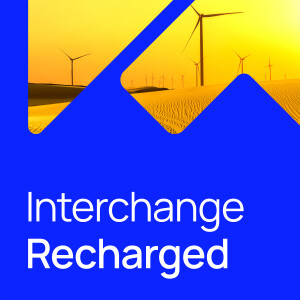
Transforming EV battery development through the power of AI
 2024-01-30
2024-01-30
The traditional process of battery development is slow, expensive, and capital-intensive. AI can help overcome the challenges of predicting battery performance, exploring the vast design space, and conducting time-consuming cycle life testing. David Banmiller is joined by Alán Aspuru-Guzik, a professor at the University of Toronto specializing in Chemistry and Computer Science, and Jason Koeller, the CTO and Co-founder of Chemix, to examine the role of machine learning in EV battery development.
Chemix is exploring new ways of developing batteries for electric vehicles (EVs) by utilizing AI, aiming to make it faster and more efficient compared to the traditional, slower, and costlier methods. AI not only speeds up the development process by predicting performance and exploring design options, but also – as Professor Aspuru-Guzik explains - leads to innovative battery compositions that improve performance. The machines can do calculations in timeframes inconceivable for a human.
There are wide-ranging applications for AI in areas beyond battery development, including grid optimization and materials design. Professor Aspuru-Guzik shares insights into the work of the Acceleration Consortium, which aims to be a leading hub for AI-driven scientific advancements in various sectors. Jason addresses some of the practical challenges in the EV industry, such as the need for adaptable battery solutions and the hurdles in introducing new manufacturing technologies. Technological advancement in battery technology and charging infrastructure are progressing together, enabling growth in the EV market.
See Privacy Policy at https://art19.com/privacy and California Privacy Notice at https://art19.com/privacy#do-not-sell-my-info.
More Episodes
 2017-08-29
2017-08-29
 66
66
 2017-08-22
2017-08-22
 29
29
 2017-08-18
2017-08-18
 27
27
 2017-08-09
2017-08-09
 9
9
 2017-08-03
2017-08-03
 13
13
 2017-07-26
2017-07-26
 10
10
 2017-06-30
2017-06-30
 8
8
 2017-06-21
2017-06-21
 7
7
 2017-06-16
2017-06-16
 2017-06-07
2017-06-07
 2
2
 2017-05-10
2017-05-10
 2
2
 2017-05-03
2017-05-03
 4
4
 2017-04-27
2017-04-27
 16
16
 2017-04-19
2017-04-19
 2017-04-14
2017-04-14
 17
17
 2017-03-17
2017-03-17
Create your
podcast in
minutes
- Full-featured podcast site
- Unlimited storage and bandwidth
- Comprehensive podcast stats
- Distribute to Apple Podcasts, Spotify, and more
- Make money with your podcast
It is Free
- Privacy Policy
- Cookie Policy
- Terms of Use
- Consent Preferences
- Copyright © 2015-2024 Podbean.com




